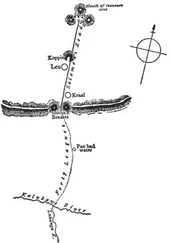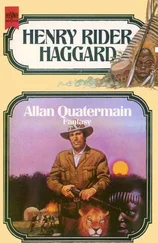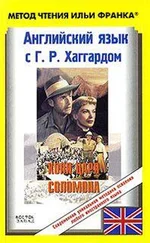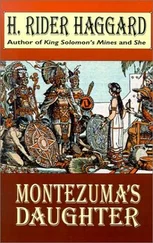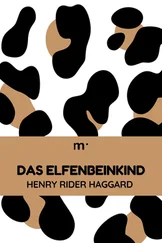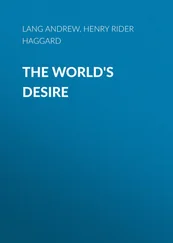Henry Haggard - She
Здесь есть возможность читать онлайн «Henry Haggard - She» весь текст электронной книги совершенно бесплатно (целиком полную версию без сокращений). В некоторых случаях можно слушать аудио, скачать через торрент в формате fb2 и присутствует краткое содержание. Жанр: Прочие приключения, на английском языке. Описание произведения, (предисловие) а так же отзывы посетителей доступны на портале библиотеки ЛибКат.
- Название:She
- Автор:
- Жанр:
- Год:неизвестен
- ISBN:нет данных
- Рейтинг книги:5 / 5. Голосов: 1
-
Избранное:Добавить в избранное
- Отзывы:
-
Ваша оценка:
- 100
- 1
- 2
- 3
- 4
- 5
She: краткое содержание, описание и аннотация
Предлагаем к чтению аннотацию, описание, краткое содержание или предисловие (зависит от того, что написал сам автор книги «She»). Если вы не нашли необходимую информацию о книге — напишите в комментариях, мы постараемся отыскать её.
She — читать онлайн бесплатно полную книгу (весь текст) целиком
Ниже представлен текст книги, разбитый по страницам. Система сохранения места последней прочитанной страницы, позволяет с удобством читать онлайн бесплатно книгу «She», без необходимости каждый раз заново искать на чём Вы остановились. Поставьте закладку, и сможете в любой момент перейти на страницу, на которой закончили чтение.
Интервал:
Закладка:
“Oh, Lord! sir, here’s a rum go,” ejaculated Job; and just at that moment a disturbance ensued, and Mahomed came tumbling between us, followed by a shadowy form with an uplifted spear.
“Allah! Allah!” howled Mahomed, feeling that he had little to hope from man, “protect me! protect me!”
“Father, it is a black one,” said a voice. “What said ‘ She-who-must-be-obeyed ’ about the black one?”
“She said naught; but slay him not. Come hither, my son.”
The man advanced, and the tall shadowy form bent forward and whispered something.
“Yes, yes,” said the other, and chuckled in a rather blood-curdling tone.
“Are the three white men there?” asked the form.
“Yes, they are there.”
“Then bring up that which is made ready for them, and let the men take all that can be brought from the thing which floats.”
Hardly had he spoken when men came running up, carrying on their shoulders neither more nor less than palanquins—four bearers and two spare men to a palanquin—and in these it was promptly indicated we were expected to stow ourselves.
“Well!” said Leo, “it is a blessing to find anybody to carry us after having to carry ourselves so long.”
Leo always takes a cheerful view of things.
There being no help for it, after seeing the others into theirs I tumbled into my own litter, and very comfortable I found it. It appeared to be manufactured of cloth woven from grass-fibre, which stretched and yielded to every motion of the body, and, being bound top and bottom to the bearing pole, gave a grateful support to the head and neck.
Scarcely had I settled myself when, accompanying their steps with a monotonous song, the bearers started at a swinging trot. For half an hour or so I lay still, reflecting on the very remarkable experiences that we were going through, and wondering if any of my eminently respectable fossil friends down at Cambridge would believe me if I were to be miraculously set at the familiar dinner-table for the purpose of relating them. I do not want to convey any disrespectful notion or slight when I call those good and learned men fossils, but my experience is that people are apt to fossilise even at a University if they follow the same paths too persistently. I was getting fossilised myself, but of late my stock of ideas has been very much enlarged. Well, I lay and reflected, and wondered what on earth would be the end of it all, till at last I ceased to wonder, and went to sleep.
I suppose I must have slept for seven or eight hours, getting the first real rest that I had had since the night before the loss of the dhow, for when I woke the sun was high in the heavens. We were still journeying on at a pace of about four miles an hour. Peeping out through the mist-like curtains of the litter, which were ingeniously fixed to the bearing pole, I perceived to my infinite relief that we had passed out of the region of eternal swamp, and were now travelling over swelling grassy plains towards a cup-shaped hill. Whether or not it was the same hill that we had seen from the canal I do not know, and have never since been able to discover, for, as we afterwards found out, these people will give little information upon such points. Next I glanced at the men who were bearing me. They were of a magnificent build, few of them being under six feet in height, and yellowish in colour. Generally their appearance had a good deal in common with that of the East African Somali, only their hair was not frizzed up, but hung in thick black locks upon their shoulders. Their features were aquiline, and in many cases exceedingly handsome, the teeth being especially regular and beautiful. But notwithstanding their beauty, it struck me that, on the whole, I had never seen a more evil-looking set of faces. There was an aspect of cold and sullen cruelty stamped upon them that revolted me, and which in some cases was almost uncanny in its intensity.
Another thing that struck me about them was that they never seemed to smile. Sometimes they sang the monotonous song of which I have spoken, but when they were not singing they remained almost perfectly silent, and the light of a laugh never came to brighten their sombre and evil countenances. Of what race could these people be? Their language was a bastard Arabic, and yet they were not Arabs; I was quite sure of that. For one thing they were too dark, or rather yellow. I could not say why, but I know that their appearance filled me with a sick fear of which I felt ashamed. While I was still wondering another litter came up alongside of mine. In it—for the curtains were drawn—sat an old man, clothed in a whitish robe, made apparently from coarse linen, that hung loosely about him, who, I at once jumped to the conclusion, was the shadowy figure that had stood on the bank and been addressed as “Father.” He was a wonderful-looking old man, with a snowy beard, so long that the ends of it hung over the sides of the litter, and he had a hooked nose, above which flashed out a pair of eyes as keen as a snake’s, while his whole countenance was instinct with a look of wise and sardonic humour impossible to describe on paper.
“Art thou awake, stranger?” he said in a deep and low voice.
“Surely, my father,” I answered courteously, feeling certain that I should do well to conciliate this ancient Mammon of Unrighteousness.
He stroked his beautiful white beard, and smiled faintly.
“From whatever country thou camest,” he said, “and by the way it must be from one where somewhat of our language is known, they teach their children courtesy there, my stranger son. And now wherefore comest thou unto this land, which scarce an alien foot has pressed from the time that man knoweth? Art thou and those with thee weary of life?”
“We came to find new things,” I answered boldly. “We are tired of the old things; we have come up out of the sea to know that which is unknown. We are of a brave race who fear not death, my very much respected father—that is, if we can get a little information before we die.”
“Humph!” said the old gentleman, “that may be true; it is rash to contradict, otherwise I should say that thou wast lying, my son. However, I dare to say that ‘ She-who-must-be-obeyed ’ will meet thy wishes in the matter.”
“Who is ‘ She-who-must-be-obeyed ’?” I asked, curiously.
The old man glanced at the bearers, and then answered, with a little smile that somehow sent my blood to my heart—
“Surely, my stranger son, thou wilt learn soon enough, if it be her pleasure to see thee at all in the flesh.”
“In the flesh?” I answered. “What may my father wish to convey?”
But the old man only laughed a dreadful laugh, and made no reply.
“What is the name of my father’s people?” I asked.
“The name of my people is Amahagger” (the People of the Rocks).
“And if a son might ask, what is the name of my father?”
“My name is Billali.”
“And whither go we, my father?”
“That shalt thou see,” and at a sign from him his bearers started forward at a run till they reached the litter in which Job was reposing (with one leg hanging over the side). Apparently, however, he could not make much out of Job, for presently I saw his bearers trot forward to Leo’s litter.
And after that, as nothing fresh occurred, I yielded to the pleasant swaying motion of the litter, and went to sleep again. I was dreadfully tired. When I woke I found that we were passing through a rocky defile of a lava formation with precipitous sides, in which grew many beautiful trees and flowering shrubs.
Presently this defile took a turn, and a lovely sight unfolded itself to my eyes. Before us was a vast cup of green from four to six miles in extent, in the shape of a Roman amphitheatre. The sides of this great cup were rocky, and clothed with bush, but the centre was of the richest meadow land, studded with single trees of magnificent growth, and watered by meandering brooks. On this rich plain grazed herds of goats and cattle, but I saw no sheep. At first I could not imagine what this strange spot could be, but presently it flashed upon me that it must represent the crater of some long-extinct volcano which had afterwards been a lake, and was ultimately drained in some unexplained way. And here I may state that from my subsequent experience of this and a much larger, but otherwise similar spot, which I shall have occasion to describe by-and-by, I have every reason to believe that this conclusion was correct. What puzzled me, however, was, that although there were people moving about herding the goats and cattle, I saw no signs of any human habitation. Where did they all live? I wondered. My curiosity was soon destined to be gratified. Turning to the left the string of litters followed the cliffy sides of the crater for a distance of about half a mile, or perhaps a little less, and then halted. Seeing the old gentleman, my adopted “father,” Billali, emerge from his litter, I did the same, and so did Leo and Job. The first thing I saw was our wretched Arab companion, Mahomed, lying exhausted on the ground. It appeared that he had not been provided with a litter, but had been forced to run the entire distance, and, as he was already quite worn out when we started, his condition now was one of great prostration.
Читать дальшеИнтервал:
Закладка:
Похожие книги на «She»
Представляем Вашему вниманию похожие книги на «She» списком для выбора. Мы отобрали схожую по названию и смыслу литературу в надежде предоставить читателям больше вариантов отыскать новые, интересные, ещё непрочитанные произведения.
Обсуждение, отзывы о книге «She» и просто собственные мнения читателей. Оставьте ваши комментарии, напишите, что Вы думаете о произведении, его смысле или главных героях. Укажите что конкретно понравилось, а что нет, и почему Вы так считаете.

